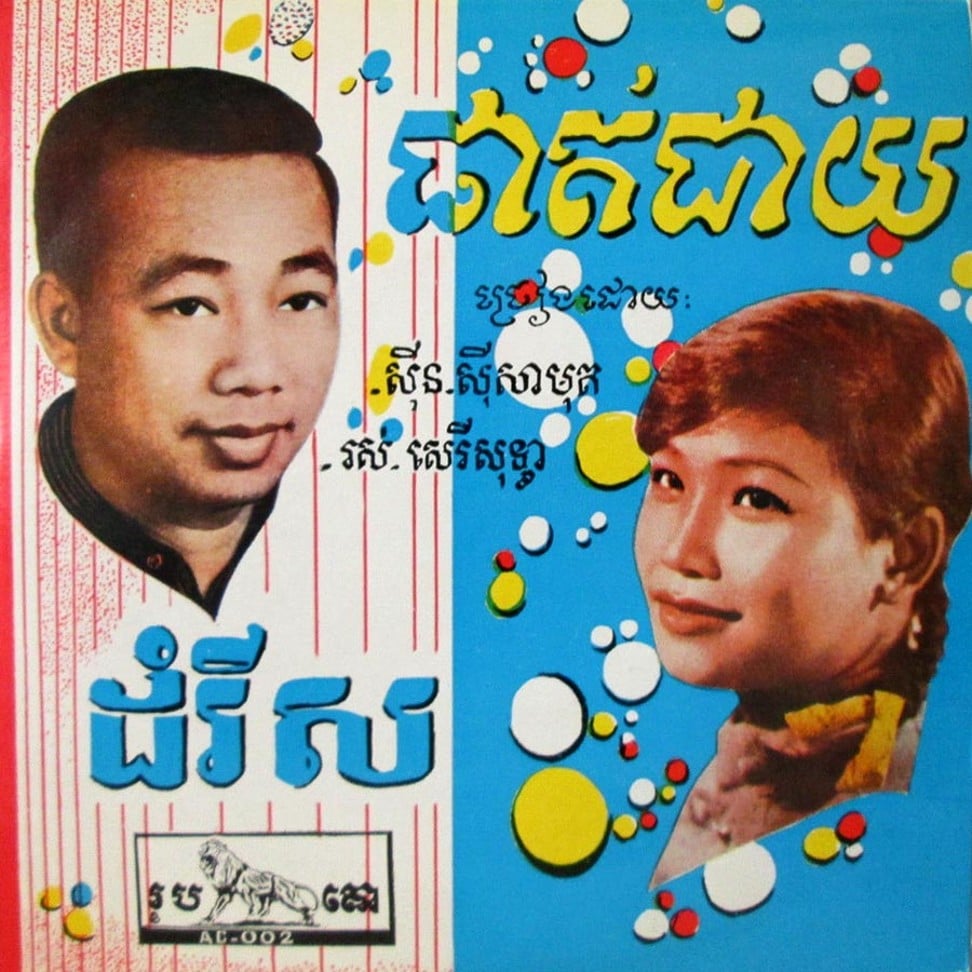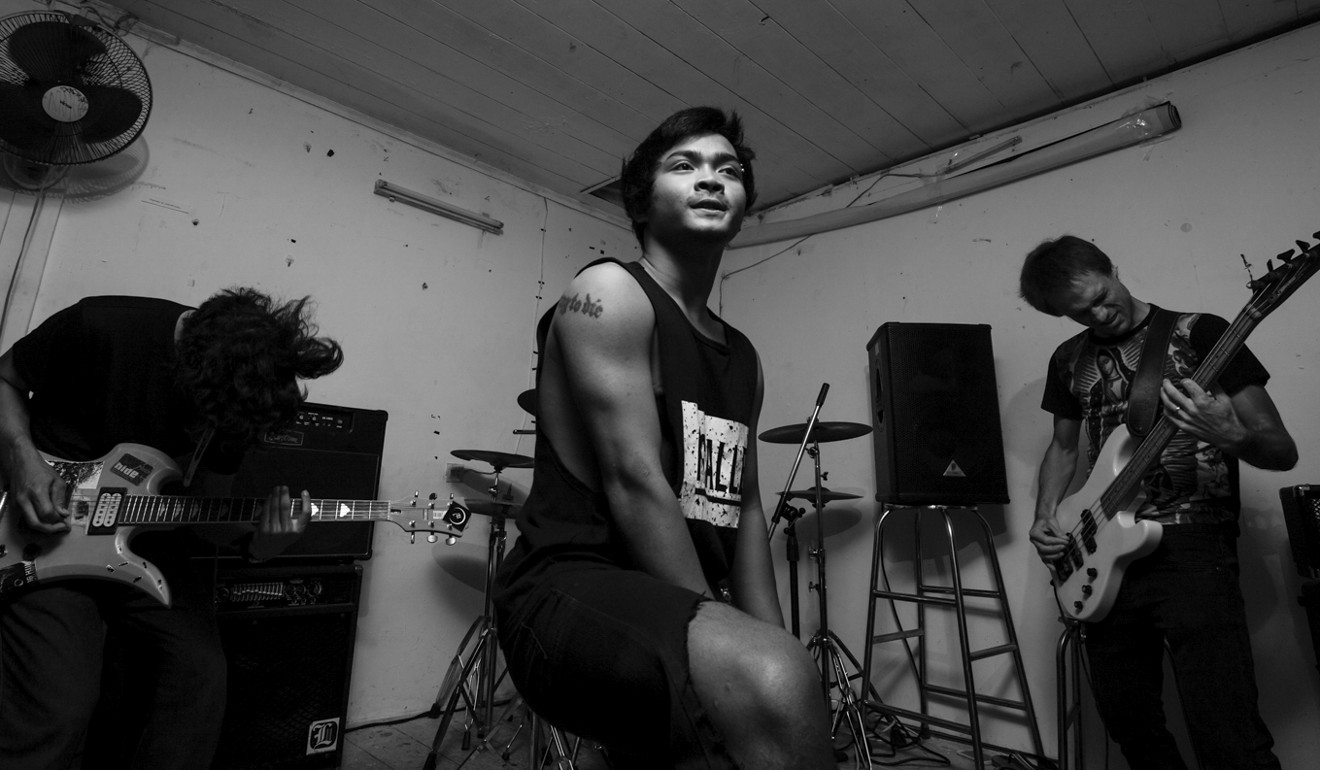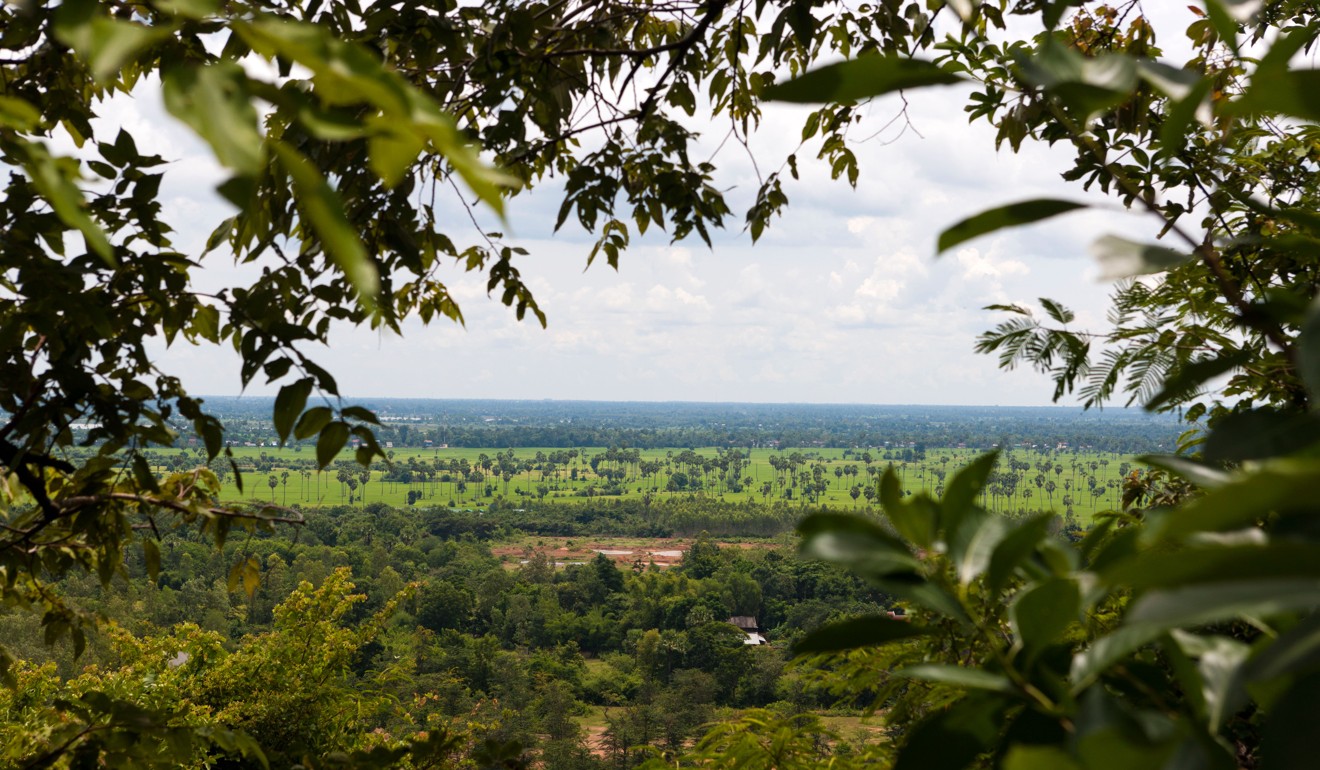
Inspired by Blondie, Cambodia’s punk rock queen uses music to empower women and challenge old-fashioned views
- Rather than sing love ballads as others in her country do, Sochetra Vartey writes lyrics about issues such as domestic violence and poverty
- Lately she’s softened her sound, but the empowering messages from Cambodia’s leading lady of punk still pack a powerful punch
Dressed in an elegant wide-legged jumpsuit, Sochetra Vartey takes off her oversized sunglasses and flashes a broad smile. “I’ve changed my style slightly,” Cambodia’s leading lady of punk rock confesses, as she runs her perfectly manicured fingers through her glossy hair, revealing a set of gold hooped earrings.
She looks a picture of glamour, a far cry from the stereotypical image conjured of a female punk. Her gentle nature and soft tone also sit in contrast to the feisty female portrayed in the video for Pdey Chongrai (“Evil Husband”), the hit that catapulted her to fame in 2017.
“I wanted to do something different with my music,” she says. “Something people in Cambodia aren’t used to; something that would make them listen.”
And Vartey is no diva; shunning the bright lights of Phnom Penh for life in the provinces, she lives in the small village of Prek Lvea in Kandal province, about an hour from the capital, where she grew up.
“Phnom Penh is too loud. There’s too much traffic and pollution. I love my province,” she says. “I have a big garden and my animals with me, so I’m cool. I don’t want to live in the city.”
Vartey harboured a passion for music from a young age. Inspired by her mother, who wrote poetry and song lyrics, the 25-year-old recalls a childhood filled with the sounds of upbeat Cambodian rock ’n’ roll from such icons of the 1950s and ’60s as Sinn Sisamouth and Ros Sereysothea.
Phnom Penh is dancing to its own beat
“I always loved music but I never thought I’d be a singer,” she says; she studied accounting at university and had plans to work at a bank.
As she grew older, Vartey became hooked on the powerful pop anthems of Beyoncé and Nicki Minaj, drawn to their strong stage personas. But it wasn’t until the NGO her mum works for launched a music programme a couple of years ago that Vartey started seriously tapping into her talents.
In 2016, when her mother fostered Sok Vichey from the NGO, Vartey was introduced to a new genre of music that left her feeling empowered.

As lead guitarist of Doch Chkae – a death metal outfit born in the Steung Meanchey dumpsite on the outskirts of the capital, where its members spent their childhood collecting waste – Vichey, now 19, asked Vartey to help write lyrics.
“The first time I listened to their music, I had never heard anything like it,” Vartey recalls, adding she had grown tired of Cambodia’s stagnant music scene. The country’s mainstream music is saturated with copycat sounds and soppy love songs lamenting over unrequited love.
“I would go with the band to all of their events and I absolutely loved it. The music has so much passion and power and is very different to anything Cambodians are used to,” she says.

Doch Chkae asked Vartey to sing for them, but with her vocals unable to hit the roar-ripping, screeching heights the musical genre demands, she decided to seek out her own space.
“I loved the fast pace of death metal and the energy on stage,” she says. “I also wanted to behave like that, but my voice can’t scream like I need it to for metal, so I adapted it to similar stuff that was better for my voice. I love Blondie’s style so much, so I decided to choose more punky sounds.”
In late 2016, the Vartey Ganiva band was formed, playing songs that challenge societal norms. Today, it comprises Vartey on vocals, and Cambodia-based expats Jesse Ricketson on drums, Damani Kelly on bass and Arone Silverman on guitar.

Instead of writing about yearning for love or grieving for a lost lover, she chose to pen empowering lyrics that tackle issues such as living in poverty, domestic violence, and to proclaim feminist messages.
“In Cambodia, it is mostly love-related pop songs. Me and my team said we wanted to change something in Cambodia through music,” she says.
As she listened to couples in her neighbourhood arguing, Vartey penned the lyrics for Evil Husband. The heady hit tackles the issue of domestic abuse, which is rife across the country. A report by four UN agencies for which 2,000 Cambodian men were interviewed found one in five had attempted or committed violence against women, including rape.
Cambodia’s golden age of rock revisited
In the song, Vartey slams a layabout husband who wastes his days drinking, bingeing on drugs and sleeping with other women.
“My neighbours and relatives have suffered violence in their family,” says Vartey, her passion mounting as she talks about her ultimate aim of empowering other women.
“I see women feeling powerless and apologising to the man who has punished them when they have done nothing wrong. I want to encourage women to step up and say we can also be leaders and we are as equally important.”

Vartey faced criticism for daring to challenge the norms of what is still a conservative society.
“When I first started, many locals hated my music. Cambodian people are used to pop and love songs or old-style rock ’n’ roll. When they hear my lyrics, they aren’t used to it. I curse men. They ask me, ‘How can you curse the man?’ In Khmer culture, a woman should be gentle and soft, not strong and powerful. I want to use my music to educate women, and men, in Cambodia.”
For all the criticism, Vartey found a fan base and received the feedback she wanted.
I want to work with the next generation of teenagers to start their own music. I want to try and change the music industry.
“Many women said they felt inspired. Some messaged me to say they would play my song to their husbands when they came home late at night,” she says with a cheeky grin. “My lyrics are based on what I see around me, what happens every day in Cambodia, and issues that need to be addressed.”
After embracing the punk scene, Vartey has decided to soften her style. While sticking to her feminist punk roots, her new material is gentler and more accessible to a mainstream audience – where she says her message will have the most impact. She is currently penning her debut album and hopes to embark on a tour of Cambodia next year.
“We want to get more people listening to our message,” she says. She has injected more funky beats into her sound, while still using her lyrics to address topics deemed controversial. “We’re more punk-pop or funk-rock now,” she says.
The Cambodian singer who kept the ’60s rocking around the world
As part of her mission to shake up attitudes in Cambodia, Vartey is also part of a collective of musicians who run Yab Moung Records – the country’s first alternative music record label, which nurtures Cambodia’s burgeoning punk and metal scene.
Located in Prek Lvea, the studio also opens its doors to poor local children who want to master music. Vartey has teamed up with NGO Moms Against Poverty in Cambodia to teach youngsters how to sing, play instruments and form bands.
“I want to work with the next generation of teenagers to start their own music. I want to try and change the music industry and encourage people to find their own style,” she says.

“I’m proud to be doing this. It was hard at first to find a good team because resources are limited, and it’s hard to earn money in the music industry here. We need better venues; venues that understand music and don’t keep playing the same styles.”
However, she sees attitudes evolving quickly as more young artists emerge to push boundaries and use their art to challenge norms.
Fresh from a show-stopping performance at the country’s inaugural three-day Phnom Fem Fest and a concert to mark International Women’s Day in the capital, Vartey remains confident that change is teetering on the horizon.
“There are a lot more talented people coming along, who are trying new things and experimenting,” she says. “This is all positive and I’m confident that in a few years, there will be more variety, more venues and more receptive audiences throughout Cambodia.”

